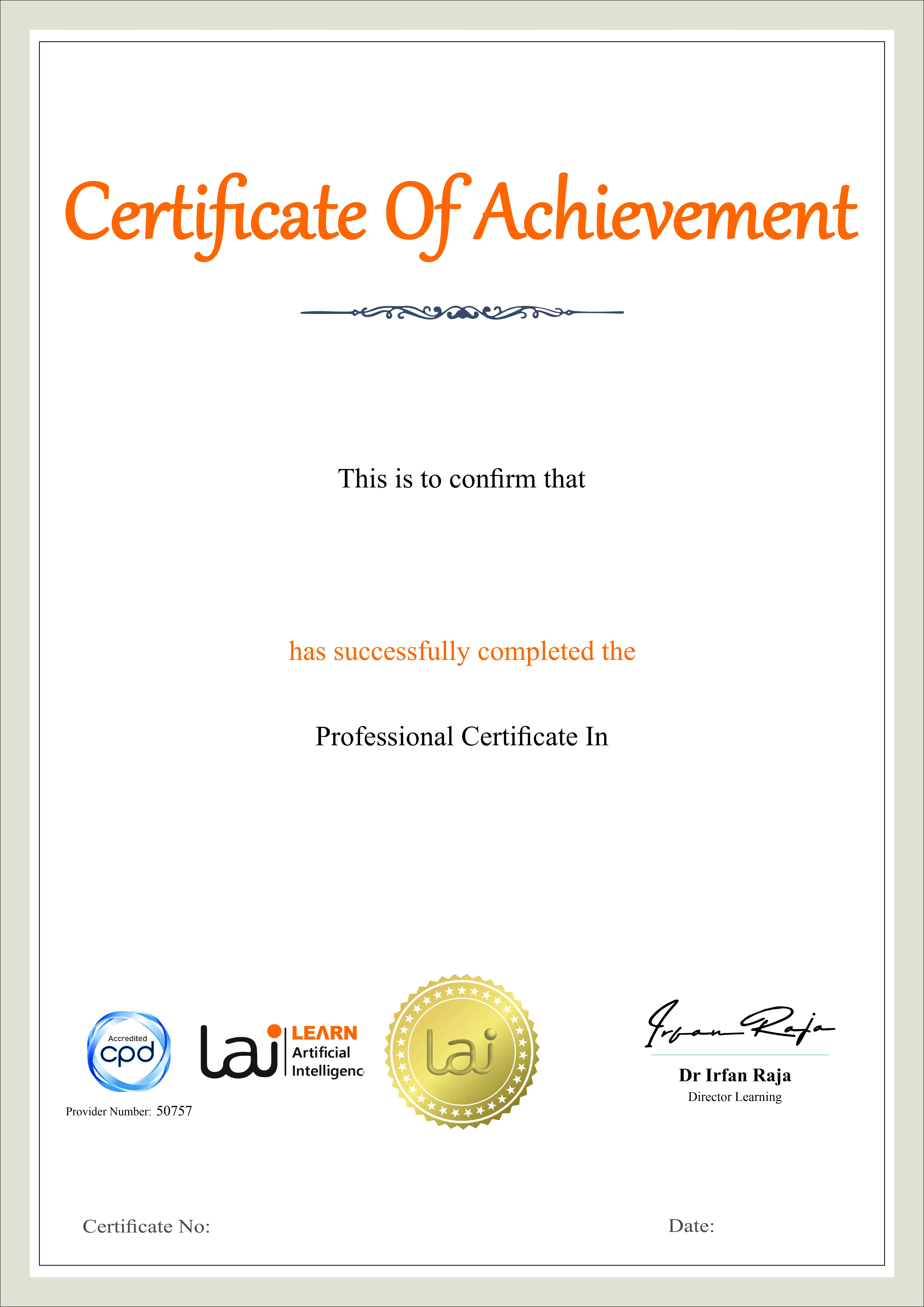The Ethics of AI in Sales & Marketing course offers a deep dive into the ethical considerations shaping how artificial intelligence is used in modern business strategies.
Ethics of AI in Sales & Marketing
The Ethics of AI in Sales & Marketing course offers a deep dive into the ethical considerations shaping how artificial intelligence is used in modern business strategies. As AI technologies become increasingly integrated into sales automation, customer segmentation, personalized marketing, and predictive analytics, the need for ethical guidelines becomes urgent. This course equips learners with the tools to critically examine the social, legal, and philosophical implications of AI in commercial environments.
Through case studies, real-world examples, and an exploration of ethical theories—including duty ethics—you will learn to navigate the complex terrain of fairness, transparency, data privacy, and customer autonomy in AI-driven marketing practices. Whether you're a business leader, AI practitioner, or marketing strategist, this course helps ensure that the power of AI is used responsibly and ethically.
This course is designed for professionals and students working at the intersection of technology, marketing, and ethics. It is especially suitable for marketing managers, sales professionals, data scientists, AI developers, and business decision-makers seeking to understand the broader implications of using AI in customer-facing roles. Academics and ethics researchers exploring applied ethics in commercial contexts will also find this course valuable. No prior knowledge of ethics is required, though a basic understanding of AI or marketing concepts will be helpful.
Understand the core issues surrounding the Ethics of AI in Sales & Marketing
Identify and apply ethical frameworks, including duty ethics, to AI applications
Evaluate the ethical risks related to data privacy, bias, and customer autonomy
Analyse the societal and psychological impact of AI-powered marketing techniques
Develop strategies for implementing transparent, fair, and accountable AI systems
Explore emerging ethical concerns related to future AI marketing trends
-
Get an overview of how AI is revolutionizing the fields of sales and marketing. Learn about tools like recommendation systems, chatbots, predictive analytics, and customer journey mapping.
-
Explore foundational ethical theories, including consequentialism, virtue ethics, and duty ethics. Learn how these frameworks apply to real-world marketing dilemmas involving AI.
-
Explore into the importance of responsible data handling, GDPR compliance, consent mechanisms, and encryption practices in AI-powered marketing tools.
-
Examine how biased data and algorithm design can lead to discriminatory outcomes in sales targeting and lead scoring. Learn methods to identify and mitigate bias.
-
Discuss the importance of explainable AI (XAI) and mechanisms to ensure accountability in automated decision-making, especially when interacting with customers.
-
Evaluate the ethical boundaries of persuasive technologies and personalized content. Discuss when personalization becomes manipulation and the importance of preserving consumer autonomy.
-
Understand the broader societal impacts of AI marketing, such as reinforcing stereotypes, deepening digital divides, or contributing to overconsumption. Learn how companies can align with ethical values.
-
Explore emerging trends such as AI influencers, synthetic media, emotion-detection technology, and the ethical questions they raise. Consider how to proactively design future-proof ethical standards.
Earn a Professional Certificate
Earn a certificate of completion issued by Learn Artificial Intelligence (LAI), accredited by the CPD Standards Office and recognised for supporting personal and professional development.

Key Aspects of Course
CPD Accredited
Earn CPD points to enhance your profile
Free Course
This course is free to study
Self-Paced
No time limits or deadlines
Flexible & 24/7 Access
Learn anytime, anywhere
Build In-Demand Skills
Get job ready
Updated AI Skills
Stay current with AI advancement
Global Learning
Accessible Worldwide
Premium Materials
High-quality resources
Employer Approved
Boost your career prospects



